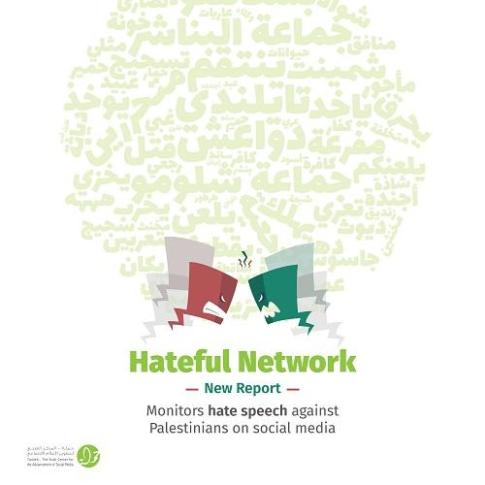
The Arab Center for Social Media Advancement has launched a new study entitled, “Hateful Network: Hate Speech on Social Media Platforms Among Palestinians and its Impact on Their Digital Rights,” which sheds light on the spread of hate speech among Palestinians in the digital space and its repercussions on their digital rights.
The study indicates a noticeable increase in the use of hate speech among Palestinians on social media platforms, influenced by events and tensions in regional politics, as well as by global events generally. Hate speech is influenced by internal disturbances and changes in the Palestinian scene, particularly at the social and political levels, whether In the West Bank, Gaza Strip, Jerusalem or in the 1948 territories. With the expansion of the virtual space and the increasing presence on social media platforms, the behaviour of Palestinians virtually has become a mirror of what is happening on the ground. The dynamics of using social media and participation in shaping the Palestinian public discourse contribute to placing Palestinian digital rights at risk, not only by the Israeli authorities and companies, but also by the Palestinian Authority in the West Bank and the de facto authority in the Gaza Strip, as well as the societal authority, which is represented by customs, traditions, and dominant narratives in the Palestinian context.
The results of the study showed that more than 71% of Palestinians believe that hate speech among Palestinians has spread on social media platforms. The results indicate that 85.7% of Palestinians were exposed to hate speech on Facebook, followed by 11.4% on Instagram. This is due to the fact that Facebook is the most popular and widely used social media platform in the country. Forty five percent of the respondents indicated that the highest rate of hate speech on social media platforms among Palestinians is related to political views. Meanwhile, 7.9% of the respondents indicated that hate speech is related to religion.
Read the full study here.